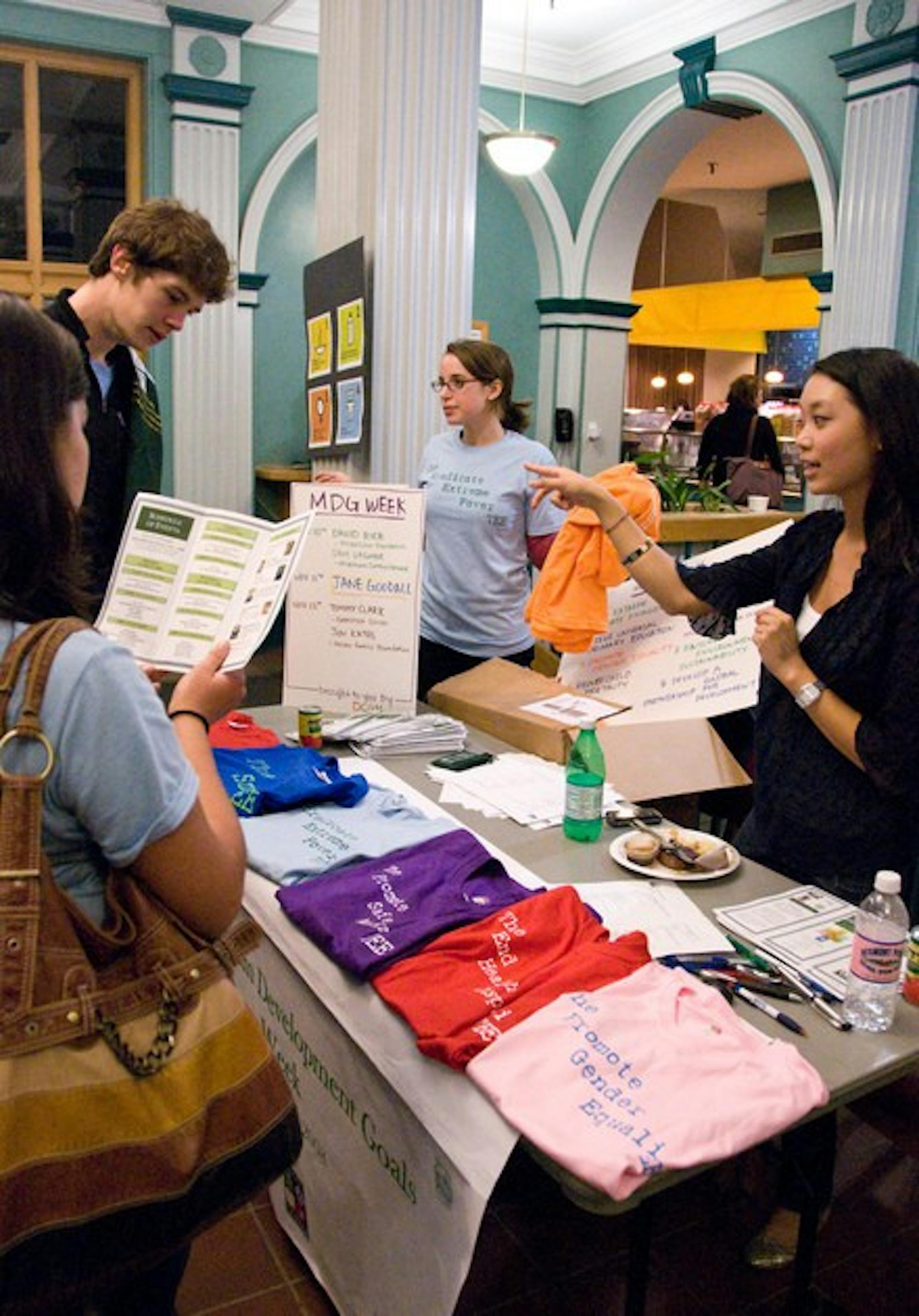The challenge, sponsored by the Dartmouth Coalition for Global Health and the East Wheelock Service Corps, offered a $2 rice-and-beans dinner served in Food Court. The event also included a food and clothing drive in Collis Common Ground to benefit Goodwill and the Upper Valley Haven in White River Junction, as well as a survey to determine how much students knew about the United Nations's Millennium Development Goals agenda.
The event is a precursor to DCGH's "Millennium Development Goals Week," which will take place Nov. 10-14. The week-long program is unlike any other in the country, DCGH's Executive Director Ben Campbell '10 said, calling it "one of the biggest things we've ever done."
Many students surveyed by The Dartmouth did not know what the United Nations' Millennium Development Goals were, and Campbell said student's lack of awareness motivated DCGH to organize the event. DCGH designed T-shirts to represent the UN's eight MDGs: eradication of extreme poverty and hunger, universal primary education, promotion of gender equality and empowerment of women, reduction of child mortality, improving of maternal health, combatting HIV/AIDS, malaria and other diseases, ensuring environmental sustainability and building a global partnership for development, he said. The T-shirts, distributed for free in Thayer Dining Hall and the Collis Center, were popular among student participants.
Wednesday's challenge was meant to raise awareness of the importance of eradicating extreme poverty and hunger, the first of eight MDGs set by the United Nations to be accomplished by 2015, Campbell said.
The World Bank determined in 2005 that 1.4 billion people live in extreme poverty, and an estimated 1 billion people suffer from hunger, a number that may increase with escalating food prices, according to the UN's web site.
"The challenge sparks creativity to look at issues like poverty outside of the box," Christine Goldrick '11, director of public relations and partnerships for DCGH, said. "It's a way to make people realize the intensity of how hard that is to live on less than $2 a day, to make the statistic more of a reality."
Campbell, for whom the $2 Food Court dinner was his only meal Wednesday, said he had spoken to several students who had completed the challenge. Campbell considered the event a success because the difficulty of the challenge drew people's attention to the hardship of poverty and hunger, even if they exceeded the $2 limit.
"One big component is to get people to keep track of their finances and be more aware of day-to-day expenses," Campbell said. "Obviously the constraints of poverty are not exactly manifested in the event, but to do it on campus, I think it's a powerful thing."
While Zimbabwean citizen Tanaka Mhambi '11 said he respected the event because it showed that Dartmouth students "really care" about global poverty and hunger issues, he added that he thought the event did little to actually help those living in poverty.
"As a person who lives and sees poverty at home, I think it's sort of a stupid exercise," Mhambi said. "I mean, fasting for a day isn't going to tell you what hunger is like. If you lived like that for a year, now I'm talking about a challenge that would teach you something."
Derek Lyon '11, who said his experience volunteering in the Ecuadorian rain forest compelled him to eat the $2 dinner Wednesday night, said he believes Dartmouth students are not truly in touch with global poverty and hunger on a daily basis.
"Here all you have to do is swipe your card to get food, and if you don't have enough money, you can always just go negative on DBA," Lyon said. "People in poor communities don't have a card, and they can't go negative. I think it would be good for everyone to visit those kinds of communities, whether it's your nearby homeless shelter or the Ecuadorian rain forest."




